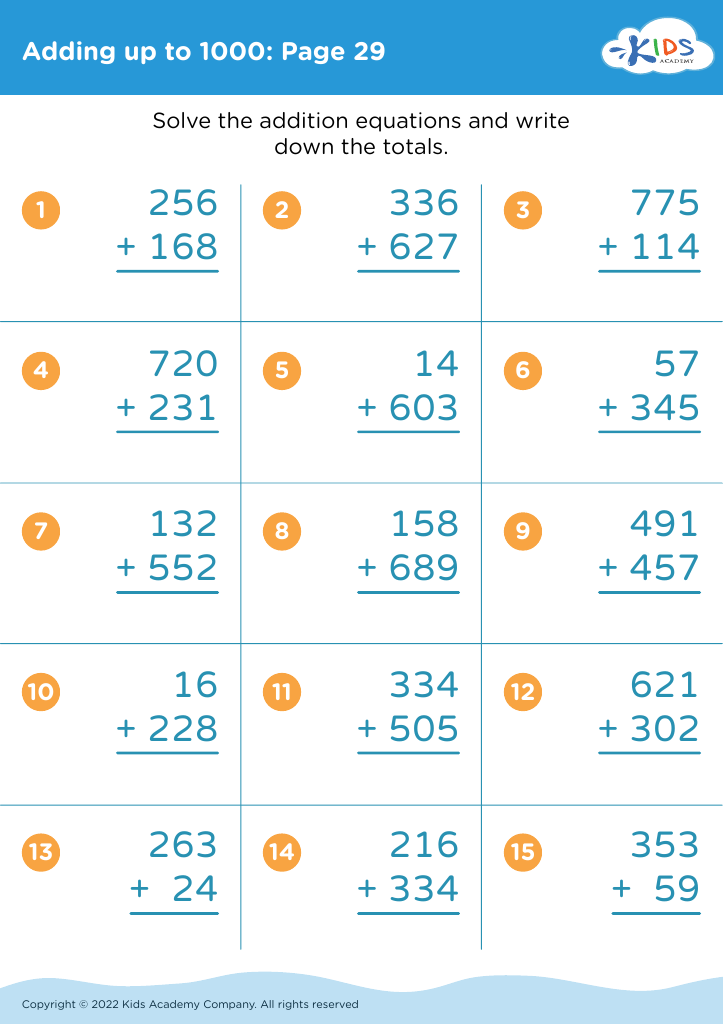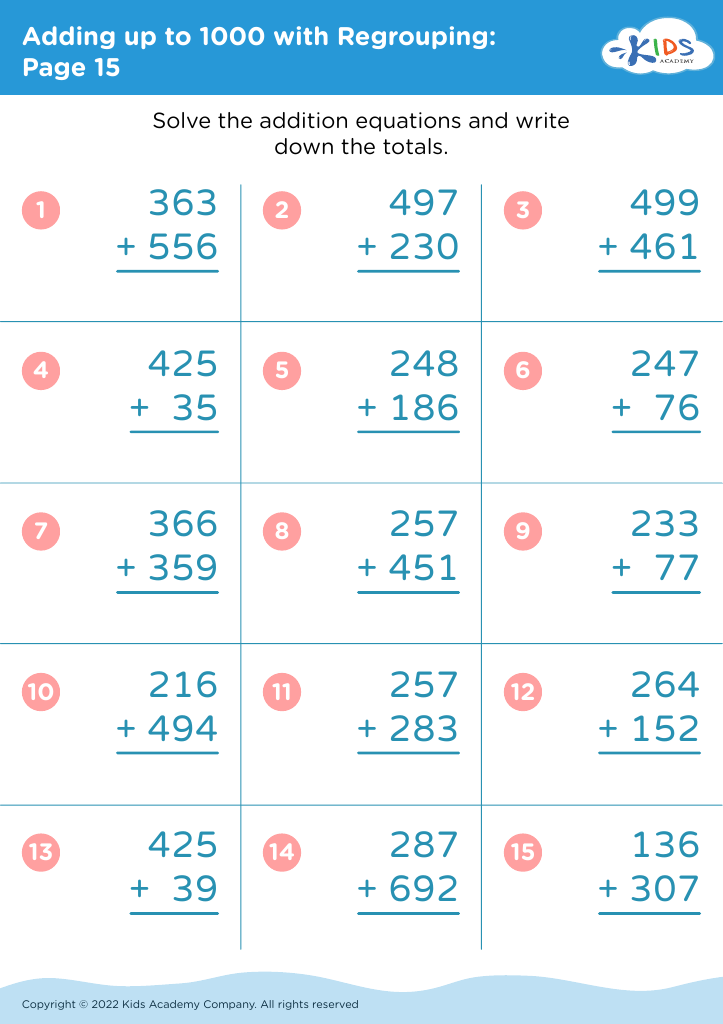Understanding time Adding up to 1000 Worksheets for Ages 3-7
3 filtered results
-
From - To
Unlock your child's potential with our "Understanding Time: Adding up to 1000 Worksheets" designed for ages 3-7. Our engaging and interactive worksheets help young learners grasp the concept of time and practice math skills, all while having fun. Each activity is crafted to develop critical thinking and problem-solving abilities by breaking down complex tasks into manageable steps. Perfect for both classroom and home learning, our worksheets offer a blend of creativity and education, fostering a love for learning in your little ones. Prepare your child for academic success with Kids Academy's trusted resources.
Understanding time and numbers up to 1,000 at a young age is crucial for a child’s developmental milestones and future academic success. For ages 3-7, this phase forms the foundation of their cognitive, numerical, and problem-solving skills. First, grasping the concept of time helps young children develop a sense of routine, responsibility, and the ability to organize their day. It also lays the groundwork for later subjects such as history and science where timelines are important.
Why numbers up to 1,000? Mastering basic number skills, especially understanding large numbers at an early stage, can significantly boost a child's confidence in math. It strengthens their counting, addition, subtraction, and provides a solid base for more complex mathematical concepts. Future subjects in school build on these basics, including fractions, decimals, and handling money.
Engaging with numbers through playful activities, counting games, and stories makes learning enjoyable and motivates kids to explore more. Parents and teachers should prioritize these fundamentals to ensure children perform well academically and develop critical life skills. Thus, an early emphasis on understanding time and numbers equips children with essential tools for thriving both in their studies and their everyday lives.


















